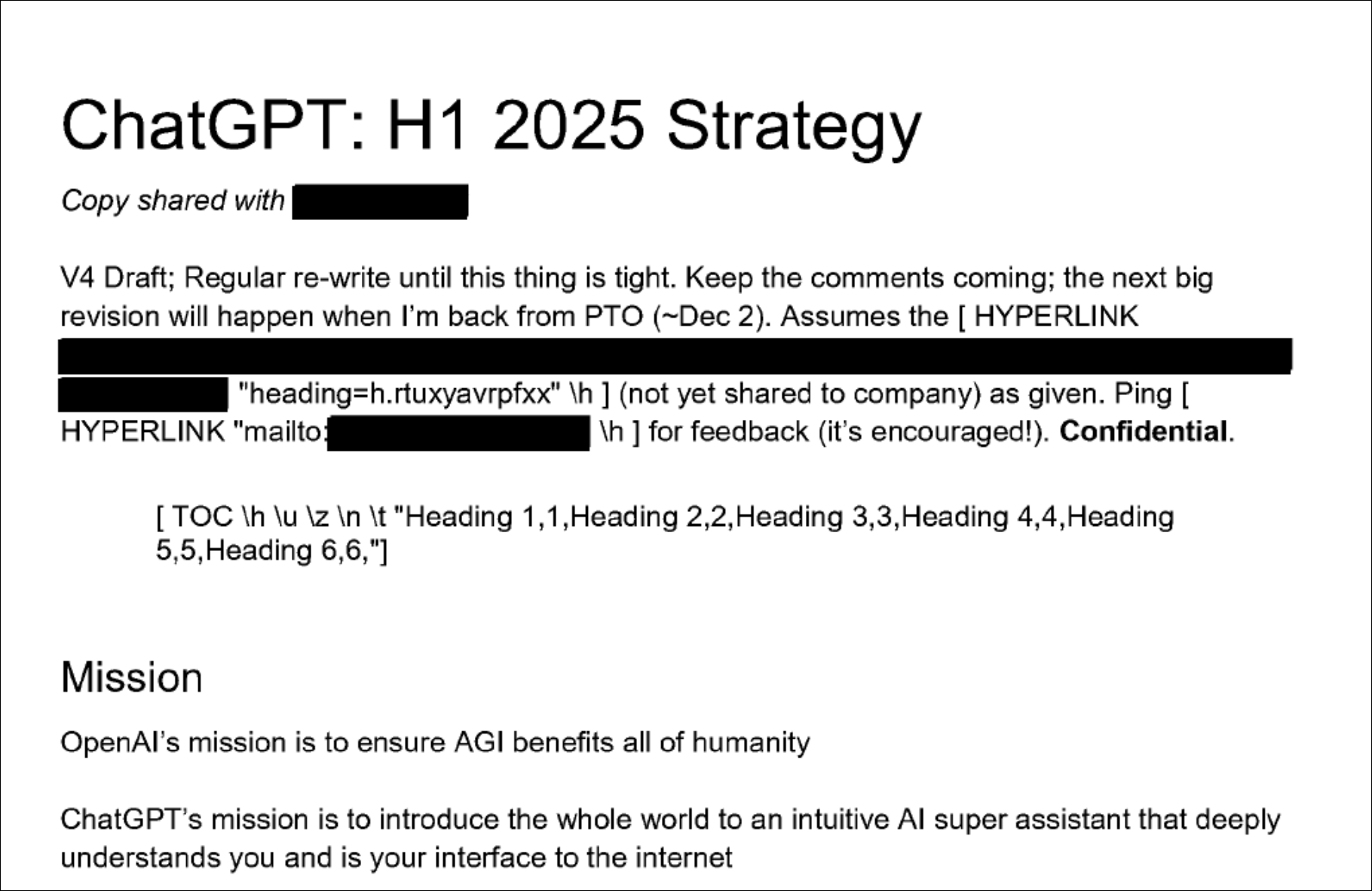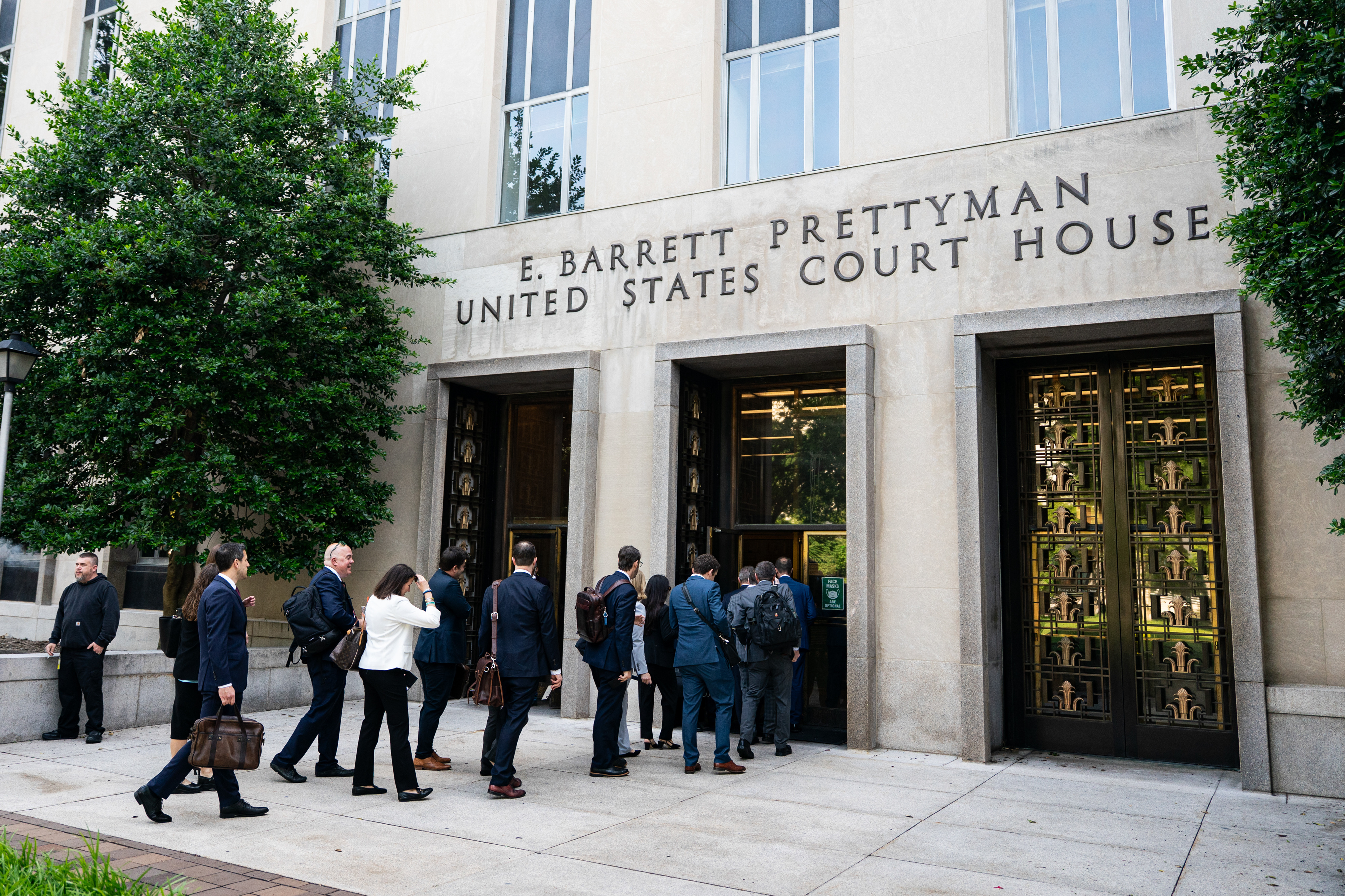An internal OpenAI doc reveals exactly how ChatGPT may become your "super-assistant" very soon.
The document also reveals how OpenAI thinks about its more established competitors — and how to defeat them.

Since its debut in late 2022, ChatGPT — the generative AI model created by OpenAI — has redefined information gathering on the web.
ChatGPT has come to replace Google searches for vast swaths of the population, but an internal document released this week shows that’s only the beginning.
A "highly confidential" document titled "ChatGPT: H1 2025 Strategy" was made public as part of the discovery process in the Justice Department’s case against Google. It spells out a “super” vision for ChatGPT.
While much of the document, written in the fall of 2024, is redacted, it makes clear just how much OpenAI expects ChatGPT to change in the future.
“In the first half of next year, we’ll start evolving ChatGPT into a super-assistant: one that knows you, understands what you care about, and helps with any task that a smart, trustworthy, emotionally intelligent person with a computer could do. The timing is right. Models like 02 and 03 are finally smart enough to reliably perform agentic tasks, tools like computer use can boost ChatGPT’s ability to take action, and interaction paradigms like multimodality and generative UI allow both ChatGPT and users to express themselves in the best way for the task.”
“In the first half of next year, we’ll start evolving ChatGPT into a super-assistant."
It describes ChatpGPT as “T-shaped” because it “has broad skills for daily tasks that are tedious, and deep expertise for tasks that most people find impossible (starting with coding). The broad part is all about making life easier: answering a question, finding a home, contacting a lawyer, joining a gym, planning vacations, buying gifts, managing calendars, keeping track of todos, sending emails. The deep part is about [REDACTED].”
Presumably, the depth OpenAI imagines for ChatGPT is about multiple-step processes, independent decision-making, and deeper thinking.
Sign up to receive The Snapshot, a free special dispatch from Laptop Mag, in your inbox.
The document also explains how ChatGPT is building out that “super assistant” in the first half of 2025, which has about a month left as of this writing.
“We will build a super-assistant that can generate enough monetizable demand to pursue these new models in H2,” the document states.
The competition as OpenAI sees it

Beyond the outline of how it plans to deploy a “super assistant,” the most fascinating part of the internal document is reading about how OpenAI views its rivals, and its plans to win against them. It mentions Claude by Anthropic, Google Gemini, Microsoft Copilot, and Meta AI.
“Looking ahead to 2025, [REDACTED] poses the biggest threat due to their ability to embed equivalent functionality across their products (e.g. without facing the business model cannibalization risks that Google does.”
Based on the amount of text that’s been redacted, only the word “Meta” would fit, and anyone who has used Instagram or Facebook recently knows Meta AI is being pushed in those apps.
There’s also a glimpse of how OpenAI plans to lobby lawmakers to ensure its competitors — many of which have their own software environments like Facebook or Windows or Gmail — are forced to allow for any generative AI service within their environments.
“Real choice drives competition and benefits everyone. Users should be able to pick their Al assistant. If you're on iOS, Android, or Windows, you should be able to set ChatGPT as your default. Apple, Google, Microsoft, Meta shouldn't push their own Als without giving users fair alternatives. The same goes for search engines: Google, Apple, Microsoft should offer users a choice for their default search engine and make their underlying indexes accessible to Al assistants, including ChatGPT.”

Lawyers made closing arguments on Friday in a Washington, D.C. courtroom in a trial on proposals to address Google's monopoly on search.
As The Wall Street Journal reported, “The Justice Department is pushing to give newer companies like OpenAI access to search data that Google would have to share under the department’s proposed remedies. It says those companies need that data to effectively compete with Gemini. Mehta questioned whether AI companies that don’t intend to build traditional search engines should get access to Google’s valuable data.”
More from Laptop Mag

Nick Lucchesi is a writer and editor who is the Editor-in-Chief for Laptop Magazine. He has worked in content marketing for technology companies and served in various leadership roles, including Editor-in-Chief at Inverse. He began his career as a daily newspaper reporter before criss-crossing the country as a web editor for alternative weekly newspapers. He lives in Brooklyn, New York.
